Finding the right retail staff for your company is absolutely vital. But it’s easier said than done.
Although we have the entire contents of global markets at our fingertips, a lot of us still prefer to do our shopping in real stores with real people. More than 16 million people are employed in retail in the US alone, and as the human face of the business, your staff on the floor are the lifeline to your customers.
But great retail staff seem to be hard to come by, especially in the time of low unemployment. 82% of retail employers say they find it hard to find candidates with the right cross-functional experience. Compared to the national average of 15%, the retail industry in the US experiences an extraordinarily high turnover rate of 60% which leads to a constant need to hire new people. To help avoid this frustrating and costly cycle of we’ve compiled a list of the top 13 dos and don’ts in hiring staff that are the right match for your retail company.
What’s in?
- Don’t just look for retail experience
- Do look for transferable skills
- Do incorporate recruitment software
- Do include roleplay in your interview process
- Do offer a paid job trial
- Do reference & background checks
- Don’t forget to ask current and previous employees
- Do practice multichannel recruiting
- Don’t neglect your candidate experience
- Don’t offer unsustainable hours
- Do make progression routes clear
- Do create a positive working environment
- Don’t sugar-coat the job realities
So how do you make sure that you hire retail employees that will be qualified and will stay with you? Let’s dive in.
Like what you see?
Don’t miss out. Subscribe to our quarterly digest to get the latest TA and TM resources delivered right to your inbox.
1. Don’t just look for retail experience
First up: have another look at your person specification.
Have you included prior retail experience in your prerequisites? Think again. Of course, previous employment in retail can be an important asset for the right person. But the practical side of things can easily be learned on the job.
Finding conscientious people able to deliver quality customer service is far more important.
2. Do look for transferable skills
Which brings us onto our next point—transferable skills.
Knowing how to work with people and keep them happy is a priceless quality in your retail staff. And it’s one that may have been acquired in any number of jobs or roles in their past.
For example, a candidate with no retail experience but who has spent years working for tips in a busy restaurant will most likely have very strong customer service skills. They will know how to work under pressure and at speed and make sure your customers leave satisfied.
Likewise, younger candidates who may not have much traditional work experience can still show their potential in other ways. Perhaps they’ve participated in extracurricular activities like drama or sports or school societies.
Amongst other things, these kinds of roles and experiences require developed interpersonal skills, confidence, teamwork, and tenacity—qualities that will be useful to anyone in the retail industry.
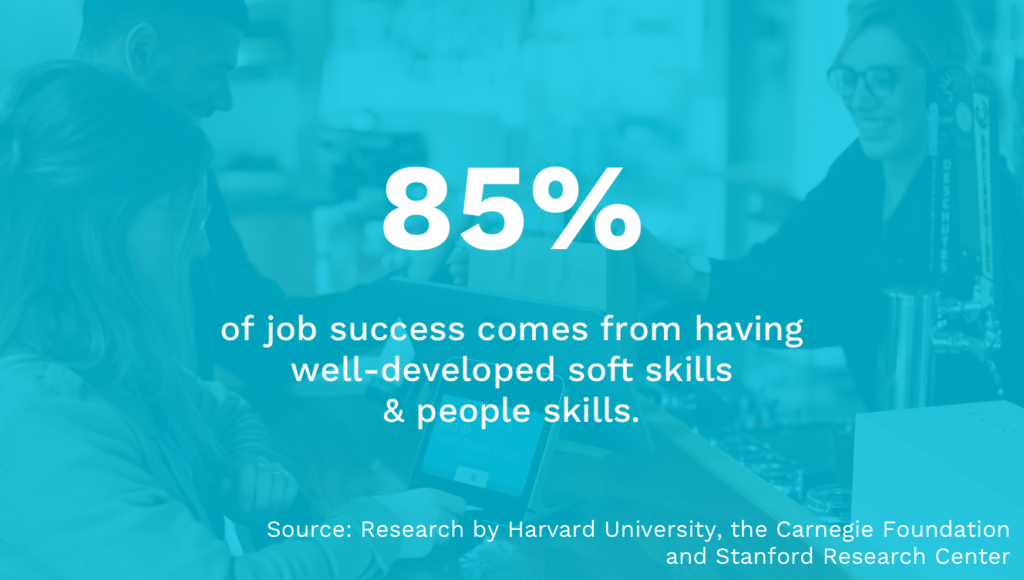
…only the remaining 15% are technical skills and knowledge. That’s why you should take these into consideration when hiring retail candidates.
3. Do incorporate recruitment software
Using recruitment software in your hiring process can help uncover the best candidates for your business.
Such software can save you time by automatically scanning your applicants for characteristics, skills, and criteria you determine, allowing you to focus on the ones who are the best fit while also eliminating unconscious bias.
When selecting a recruitment tool for your retail business, carefully consider your needs and check how a certain software could be of help to you. For example, if you’re hiring employees for several roles across multiple locations, it will be helpful to automate parts of your hiring processes such as assessing your candidates and moving them further in the process.
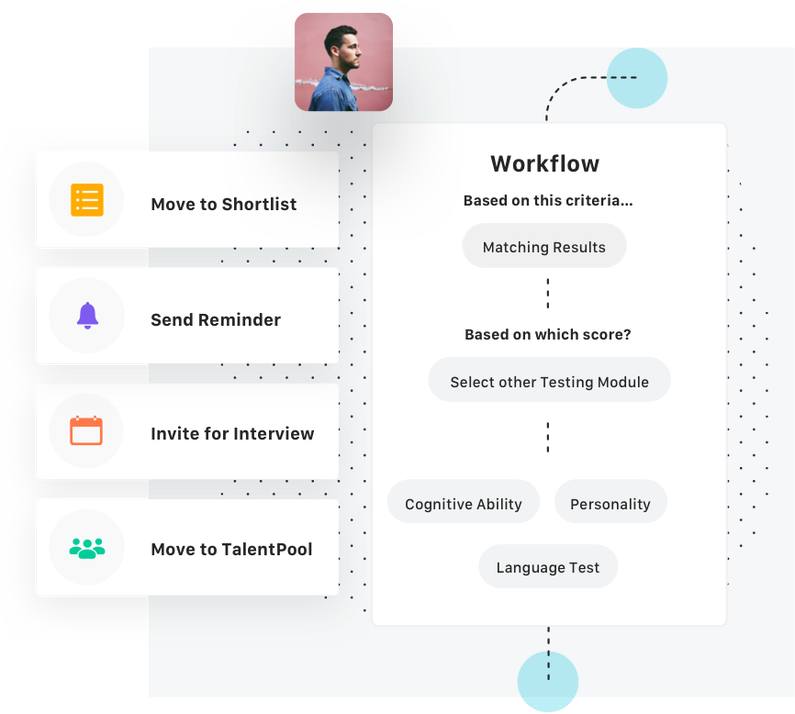
Through setting up an automated recruitment workflow, you can streamline your entire selection process from ‘apply’ to ‘hire’.
4. Do include roleplay in your interview process
When it comes to the real-life interview process, don’t just let potential hires tell you about the way they work.
Get them to show you.
Try including some roleplay to see them in action — perhaps within a group interview setting or take your candidates to the shop floor to observe how they interact with customers in real life.
However, also make sure you ask specific questions about their past track record. It’s one of the best predictors of job performance.
5. Do offer a paid job trial
Why not go one step further and invite selected candidates for a proper trial shift?
Even a short shift could be a good way for both parties to find out if they’re right for each other. The potential savings are worth a few hours’ pay—a retail associate making $10 an hour costs over $3,300 to replace. The screening process offered by a trial shift is one way to help avoid this unnecessarily high outgoing for your company.
Make sure you agree on the conditions of the trial in advance, so there are no unwanted surprises at either end. Be clear about when the trial will begin and end, what they need to bring with them, how much they’ll be paid and when you’ll be able to give them a final answer.
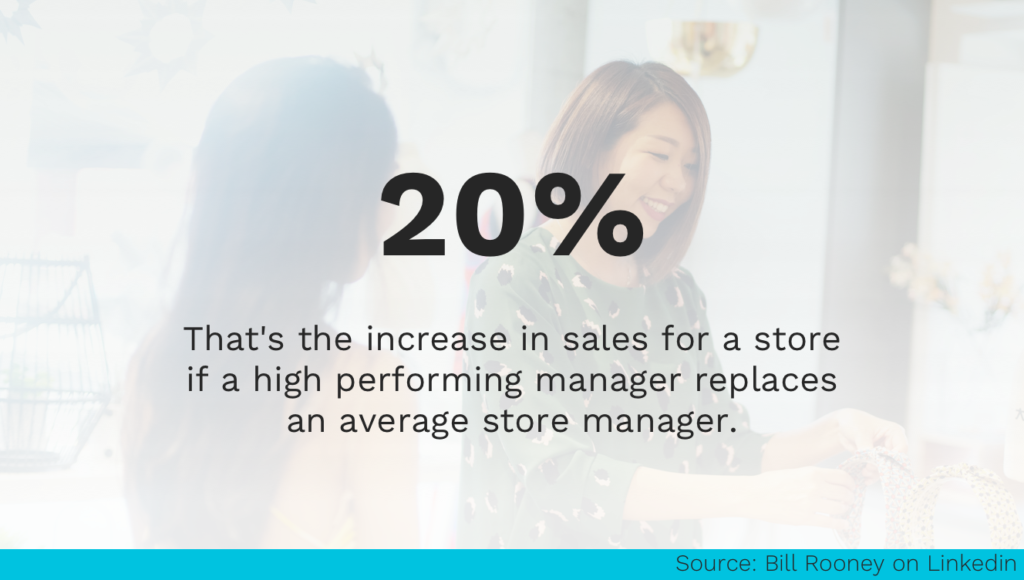
Hiring high performing retail staff will help increase productivity and revenue.
6. Do reference & background checks
Once you’ve narrowed your candidates down, make sure you conduct background checks and check their references.
It doesn’t matter if you’re hiring retail staff for the long haul, or just for the holiday season, you still need to run some type of background check on them. If they check out, make sure to ask previous employers for specific information about the candidate’s work ethic. Their success in their previous roles will give you a better idea about their suitability for the proposed job at your company.
- White paper
Before you continue!
Don’t forget to grab your free copy of our new white paper on the digital transformation of retail volume hiring. Learn about:
- The challenges currently shaping the retail volume hiring space
- How to align your recruitment strategy with today’s reality by adopting technology
- The four building blocks of a fully digital recruitment process
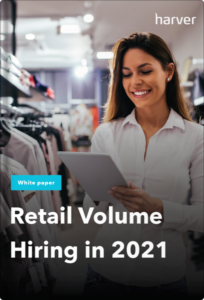
7. Don’t forget to ask current and previous employees
Why not make use of the great staff you already have and ask them if they have any friends they could refer?
Trustworthy employees will be able to provide a reliable character reference and should have a good idea of who would be an appropriate match for the team.
Reaching out to former employees is another way you can avoid the risk of investing in a completely new person. Training costs to get them back up to speed will be kept to a minimum, and they should be able to fit into the company culture fairly easily. Not to mention they will relish the fact that they’ve been headhunted for the job.
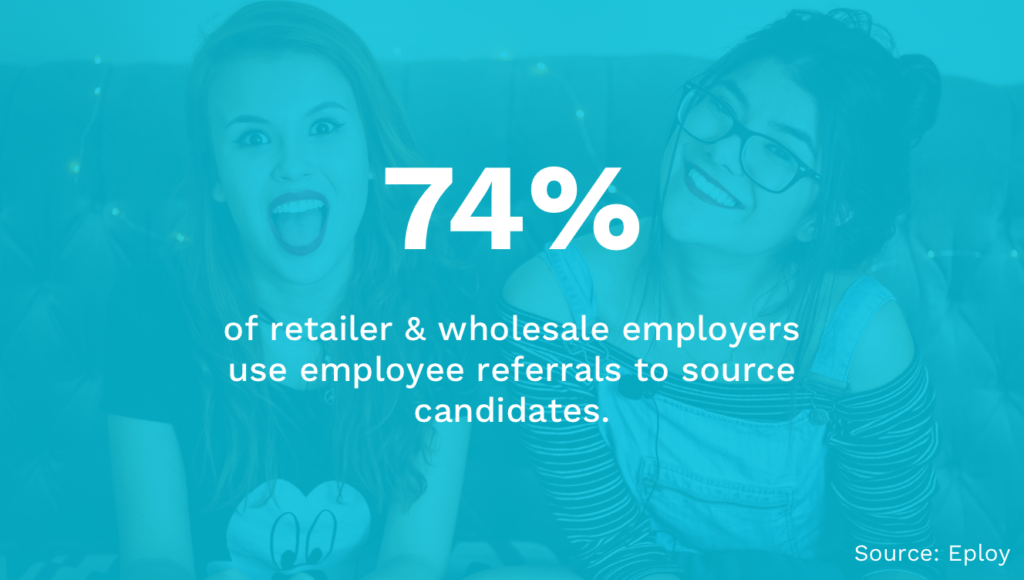
Generally, employee referrals are considered one of the most effective sources of hire and it is a popular recruitment channel in retail, too.
8. Do practice multichannel recruiting
You’ll still need some traditional recruitment methods, of course.
Putting up a “we’re hiring” sign on your storefront might still work in retail, but you need to go beyond that to attract the right candidates. Try various recruiting channels like social networks and online job boards to make sure you’ve widened the pool of potential employees.
Use popular job boards like Indeed and engage with social media to reach as many potential candidates as possible in easy click-to-apply formats. Another option for retailers with multiple locations is to use software to integrate their hiring processes to help candidates apply for several stores at once.
Not only will this save time for your store’s managers from finding candidates close by, but it will boost the overall hiring experience for job seekers.
9. Don’t neglect your candidate experience
Don’t forget about the candidates that don’t make it through.
In retail, it is very common that your employees are your customers. Did you know that 65% of candidates are less likely to buy from you if they didn’t hear back after an interview? Even if a candidate didn’t make the cut as an employee, you’re still going to want them as a customer, so treat them right.
Try to make your candidate’s experience from start-to-finish fun, engaging and quick. Albert Heijn, the leading supermarket in the Netherlands, uses recruitment software to reduce their time to hire by 40%. But one of the most rewarding parts of using this software in their hiring processes was giving their job candidates a more positive experience.
“We want to treat our applicants the way we treat our customers,” Employer Branding Specialist Martijn Ulehake said. “We have to be able to offer them job security within a few days. Previously it took around 20 or in some cases even 30 days to hire a candidate after they applied. Now, with automated scheduling, we have interviews taking place 24 hours after the application.”
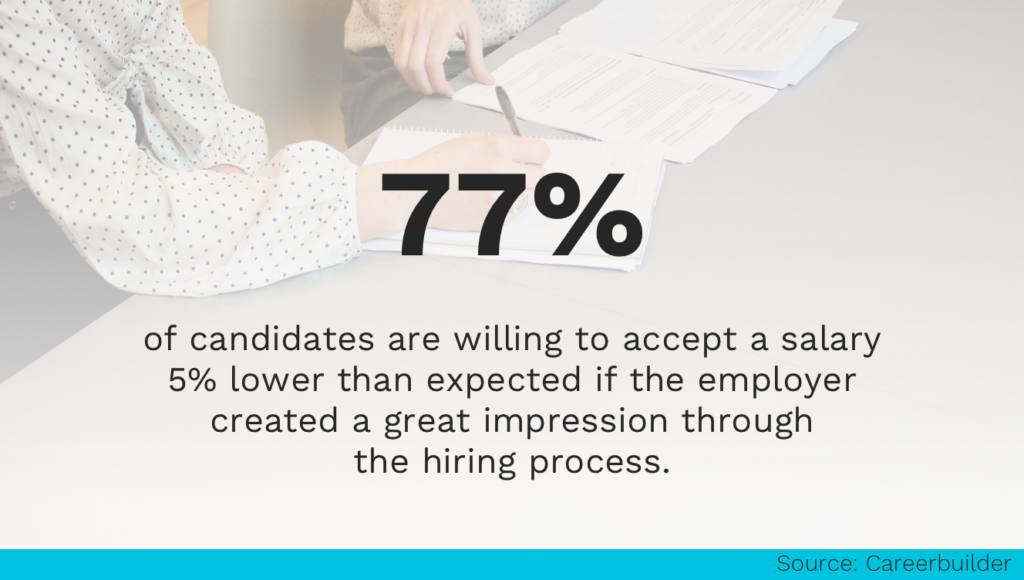
Great candidate experience is something that can really distinguish you from your competitors and help you snag the best candidates.
10. Don’t offer unsustainable hours
This means not asking people to work back-to-back double shifts left, right and center.
But it also means the opposite—you need to offer people enough to make the job worth their while. Although unemployment is low, the rate of underemployment is nearly double the unemployment rate.
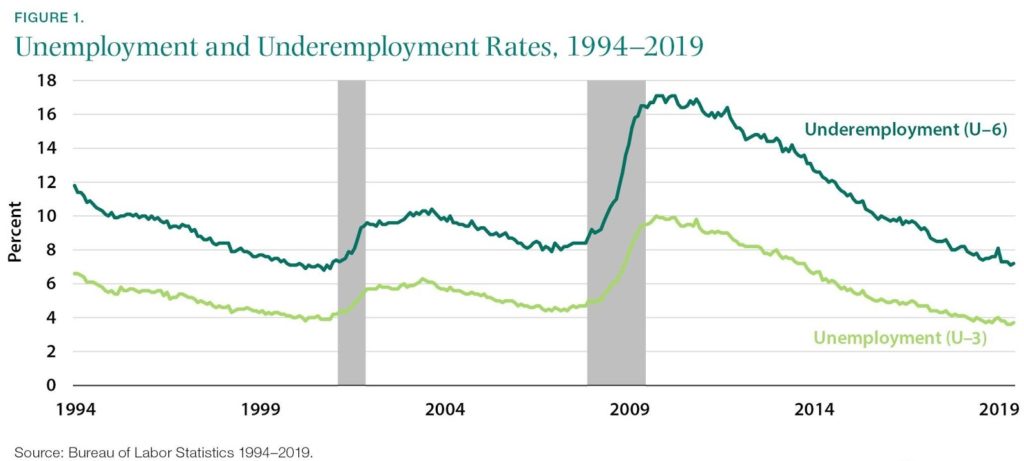
This refers to those who technically have a job and so don’t show up on the unemployment stats—but who want to work more.
While in some ways it makes sense to optimize flexibility and have a large base of part-timers, lots of people want (and need) full-time hours. The age of zero-hour contracts isn’t good for employees or employers. If your staff find more reliable hours elsewhere, then you can wave them goodbye from your storefront.
Offering your candidates full-time roles where possible and guaranteed hours is one way you can help them and in so doing help yourself.
11. Do make progression routes clear
On that note, underemployment also refers to not taking full advantage of an employee’s skills or potential.
Let’s face it; there are many highly qualified people out there trying to find a job to match their skill set. If they don’t see how their talents will be used and recognized in the workplace, then they’re just not going to be interested—or not for long, anyway.
So, to make sure you’re attracting highly skilled and ambitious types who will stay, make the possibilities of promotion clear. Inform them of progression routes and offer up opportunities for in-house training. Let candidates know both that you value what they have to offer and that they’ll be learning with you too.
12. Do create a positive working environment
Your retail staff are going to be more interested in remaining part of a workforce that cares about their wellbeing.
Even small things will make a big difference though—little perks such as staff nights out and team-building exercises can foster a strong sense of loyalty. Sephora is famous for the range of benefits and perks it offers its workers.
As well as providing medical plans for its employees, staff get up to 40% discounts, and they can participate in the Sephora Loves Perks program to get discounts on gym memberships, show tickets and more. Furthermore, Sephora offers extensive trainings and a tailored development program to all its employees.
Make your working environment as fun and supportive as possible, and you’ll have a happier workforce who are more likely to stick with you.
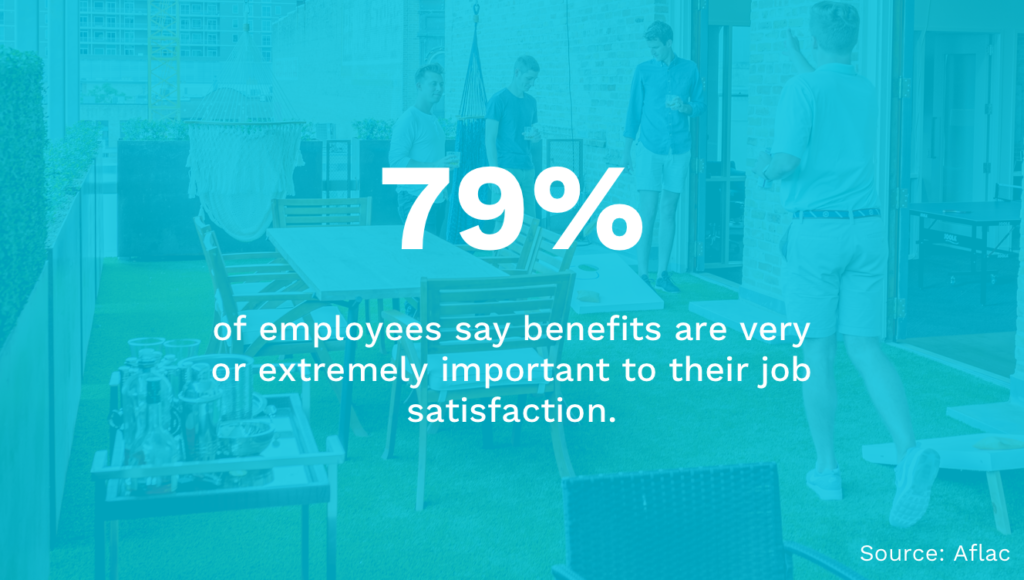
Not only can a well-designed employee benefits program boost job satisfaction, it can can also important for loyalty to employer and work productivity.
13. Don’t sugar-coat the job realities
No perks will take away the fact that working in retail is tough.
Standing all day, working long hours, dealing with customers—pretending that working in retail is an easy gig will only encourage a high turnover of staff in the future. It’s a hard job to pull off day in, day out. Be honest with your employees from the start about what it is they’re signing up for.
That’s why building in work simulations and job trials into your recruitment process, and above all, being honest, will help you hire the right people.
Wrapping up
Retail work is hard, but so is recruiting the right people to do that work.
Managers are busy enough running your stores. Add into the mix competition with neighboring stores and low unemployment and finding great retail staff can seem like a daunting prospect. But by making the pre-selection process as intelligent as possible and creating a supportive working environment, you can find and retain the right staff for your store.
Implement software to help you organize your candidate pool and automate the repetitive tasks involved with recruitment. Not to mention, it will reduce your time to hire and give your candidates a better overall experience.
But most importantly, investing in your employees and their wellbeing will increase the chance that they will want to remain part of your community. Happier employees mean happier customers, so always try and create a positive environment for the retail staff you end up hiring.
Ready to transform your hiring process?


